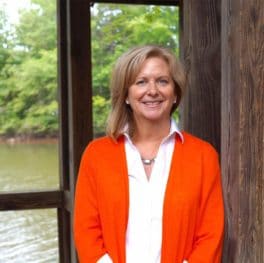HEALTH MATTERS
Body Wisdom During a Quarantine

Editors’ Note: we welcome Kathy Bray to our Health Matters Column. We think you will find her wisdom helpful and inspiring.
During a recent appointment with a patient who had been experiencing chest pressure and heart palpitations, a cardiologist said, “The problem is not with your heart. It is with what your heart has to carry these days.”

Kathy Bray
I imagine that gastroenterologists are having similar conversations with their patients who are experiencing unhappy guts and neurologists are saying the same to patients with headaches and dizziness. Worry works its way into our bodies, and there has been so much to worry about.
We can think about these symptoms as our Body Wisdom. Our bodies are letting us know that we are at capacity; little wonder, given the level of fear and stress we have experienced. Typical stress can be beneficial as it can help us to adapt and survive. However, what we are experiencing now is anything but typical: it is sustained and chronic, unpredictable, and uncontrollable. This combination leads to a threat response. The result can look like anger, constant exhaustion, or nebulous malaise; it can be contagious; it causes us to “fill in the blanks” when we don’t have an answer to a scary question, leading us to feel even more fearful.
Researchers who study the effects of quarantine on the human psyche during space travel or submarine service have identified something they call the 3Q Phenomenon. During the first quarter of quarantine, our stress energizes us (think laying in supplies back in the spring). During the second quarter, we find our groove — we figure out how to work and learn from home, and we settle into our new routines. The third quarter, which is where we have been for months, is a total slog and, unlike the fourth quarter, it is hard to remember that this is not a permanent state. During this period of quarantine, researchers identified increases in irritability, depression, and anxiety, and a decline in cognitive functioning (brain fog, anyone?).
If this resonates with you, take comfort in knowing that this is a normal trauma response. Remember, “The problem is not with your heart. It’s with what your heart has to carry these days.”
So how do we survive the 3Q Phenomenon?
- We start by loving on ourselves a little more than we are accustomed. We are a people who soldier on, and often that serves us well. But in this moment, when emotions are big enough to impact our body and our behaviors, dismissing them leads to trouble. Acknowledge and identify your feelings, honoring the shared humanity that they represent. And then speak to yourself with kindness. It doesn’t have to be gooey or sappy; it sounds like it does when you speak to your best friend.
- We acknowledge that nobody, including ourselves, is at their best. Now may not be the time to take on your difficult co-worker or neighbor. Instead, just for today, try showing up with the intention of providing loving service. We can settle disagreements tomorrow, when we are all feeling a little better.
- We do what I will call a Resilience Audit of ourselves. We haven’t survived what we have survived by chance. Identify and celebrate the strengths that have gotten you this far. Ask yourself, “What is being asked of me in terms of growth?” or “How have I had to evolve during these struggles?”
- We express gratitude. When we take the time to identify things for which we are grateful, we ground ourselves in the knowledge that it isn’t all bad, which refocuses the lens through which we view our life.
- We find somebody to talk to. Pure and simple. It can be a friend, a family member, or a therapist. Sometimes there is great power in simply letting the words hit the air.
And cat videos. Lots of cat videos.
Kathy Bray
Kathy Bray is a Licensed Clinical Mental Health Counselor Associate with a master’s in clinical mental health counseling. She is a graduate of Davidson College where she worked for twenty years prior to establishing a private counseling practice.


